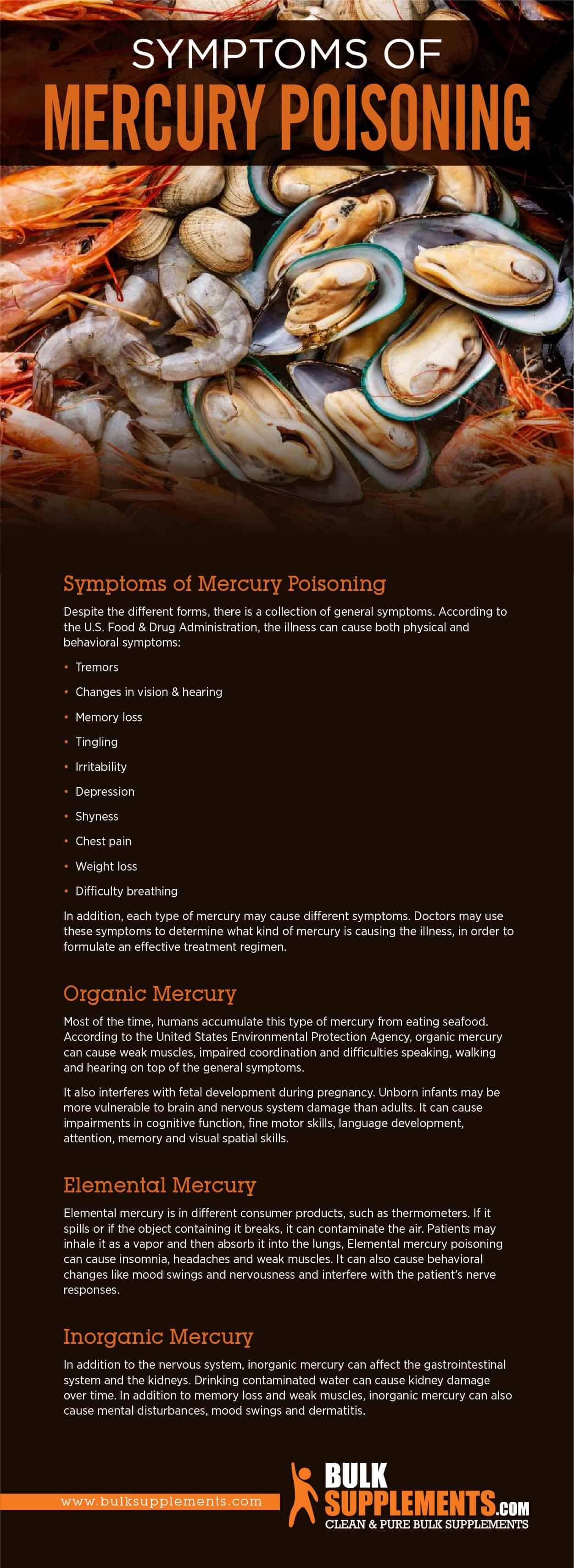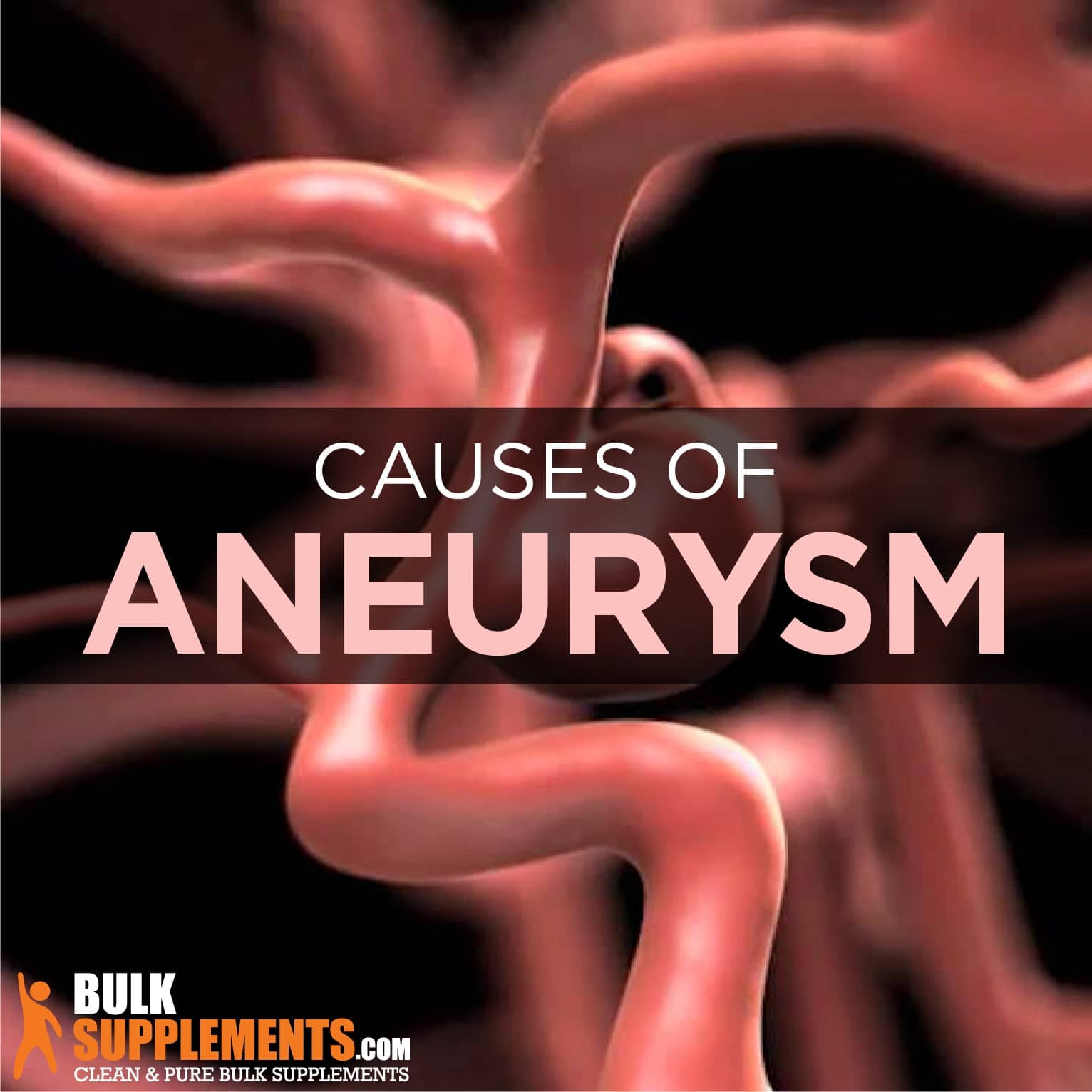Mercury Poisoning: Causes, Symptoms & Treatment

Mercury Poisoning
What Is Mercury Poisoning?
Mercury is a natural element in the Earth’s crust, water, rocks and soil. Currently, the largest mercury deposit on Earth is cinnabar, also called mercuric sulfide. Mercury exists as a liquid metal, as a vapor and in organic and inorganic compounds. Although it is a natural element, it is also extremely toxic.
Mercury can take multiple forms: elemental (liquid), organic (methylmercury) and inorganic. Organic mercury is the most common form and most often, humans come in contact it through their diets. Each of these forms may affect patients differently. They may have different toxicity levels and different effects on the nervous, immune and digestive systems. They may also cause symptoms on the skin and in the kidneys and lungs.
Humans encounter mercury every day. There are trace amounts in food, especially in fish and shellfish. However, trace amounts usually do not cause an ill effect on health. But humans may ingest excess mercury, which can cause mercury poisoning if it reaches toxic levels in the body. Depending on the type of mercury, symptoms may differ per individual. However, the condition mainly affects the brain and nervous system. Anyone can suffer from it, but pregnant women, children and infants are more vulnerable to damage.
Symptoms of Mercury Poisoning
Despite the different forms, there is a collection of general symptoms. According to the U.S. Food & Drug Administration, the illness can cause both physical and behavioral symptoms:
- Tremors
- Changes in vision & hearing
- Memory loss
- Tingling
- Irritability
- Depression
- Shyness
- Chest pain
- Weight loss
- Difficulty breathing
In addition, each type of mercury may cause different symptoms. Doctors may use these symptoms to determine what kind of mercury is causing the illness, in order to formulate an effective treatment regimen.
Organic Mercury
Most of the time, humans accumulate this type of mercury from eating seafood. According to the United States Environmental Protection Agency, organic mercury can cause weak muscles, impaired coordination and difficulties speaking, walking and hearing on top of the general symptoms.
It also interferes with fetal development during pregnancy. Unborn infants may be more vulnerable to brain and nervous system damage than adults. It can cause impairments in cognitive function, fine motor skills, language development, attention, memory and visual spatial skills.
Elemental Mercury
Elemental mercury is in different consumer products, such as thermometers. If it spills or if the object containing it breaks, it can contaminate the air. Patients may inhale it as a vapor and then absorb it into the lungs, Elemental mercury poisoning can cause insomnia, headaches and weak muscles. It can also cause behavioral changes like mood swings and nervousness and interfere with the patient’s nerve responses.
Inorganic Mercury
In addition to the nervous system, inorganic mercury can affect the gastrointestinal system and the kidneys. Drinking contaminated water can cause kidney damage over time. In addition to memory loss and weak muscles, inorganic mercury can also cause mental disturbances, mood swings and dermatitis.

Risk Factors for Mercury Poisoning
Although mercury already exists naturally in the environment, there are certain risk factors that can increase the risk of toxic exposure that can cause poisoning. According to the World Health Organization, most of the time contaminated seafood or occupational exposure causes poisoning.
Contaminated Seafood
Eating contaminated seafood is a common that mercury accumulates in the blood, specifically methylmercury when it seeps into the water. Sea creatures can consume it but when another animal consumes that creature, the mercury transfers to the other host. Small creatures like shrimp consume methylmercury and if another creature or human eats it the mercury stockpiles in their system.
Occupational Exposure
There are several different industries that use mercury. For example, it is in thermometers, batteries, electric switches and barometers. It is also used to make chlorine gas and sodium hydroxide (caustic soda or lye). People who work in certain environments may be at risk of exposure. Environments that manufacture electrical equipment and automotive parts and. Chemical processing plants and mines use it as well. People who work in health services like medical or dental environments may also be at risk for exposure.
Consumer Products
Research claims that certain consumer products can also expose patients to mercury. However, health care officials are attempting to reduce and eventually completely eliminate this chemical in products like:
- Batteries
- Thermometers
- Barometers
- Lamps
- Certain types of lightbulbs
- Pharmaceuticals
- Skin-lightening cosmetic products
- Electrical switches
- Some jewelry
- Some vaccines
- Medical equipment
Treatment for Mercury Poisoning
Mercury is toxic. Currently, there is no complete cure but patients with mercury poisoning should avoid risk factors to avoid the chemical, including changing their environment if necessary. Doctors will attempt to treat the long-term effects individually. It’s important to seek medical attention as soon as symptoms appear.
Patients who experience severe symptoms may need chelation therapy, which uses chelating agents to extract the metal from the organs. They bind to metals in the blood like mercury, lead or arsenic and the body eliminates them together through the urine. They can cause side effects, so usually doctors only recommend them in cases that involve heavy metal toxicity.
Supplements for Mercury Poisoning Detox
In addition to proper medical treatment, some supplements may be able to help detoxify the body and eliminate heavy metals from the blood. However, there is limited research on their effectiveness. Always consult a doctor before taking any supplements. They are not a cure for any medical condition, but supplements can benefit overall health.
Chlorella Blue-Green Algae
Chlorella is a type of algae that contains large amounts of protein, carbohydrates, fats, vitamins and antioxidants. Research states that these antioxidants can boost the immune system and control inflammation in conditions like asthma or chronic obstructive pulmonary disease (COPD). It may also improve blood circulation and manage high blood pressure because it contains potassium and calcium that help keep the arteries clear.
In addition, researchers claim that it may be effective for detoxification. Aquatic plants like algae and chlorella may be able to bind to toxic trace metals and help extract them from the body. Specifically, it may be able to remove it from the gastrointestinal tract, muscles, ligaments, bones and connective tissue. As a food material, it can help detoxify toxic chemicals and heavy metals like mercury. As a dietary supplement, the recommended dosage for chlorella blue-green algae powder is 3,200 mg up to three times a day. In its capsule form, the recommended dosage is six capsules up to three times a day. Consult a doctor before taking this supplement.
SEE ALSO

Aneurysm: Symptoms, Causes & Treatment
Essential Fatty Acids
Fatty acids are very important to overall health. The body breaks down fat into fatty acids that it can use and absorb. Essential fatty acids are those that the body cannot make on its own. According to research, fatty acids may be able to help patients with methylmercury exposure. The researchers noticed a positive correlation between prenatal exposure and nutrient intake.
Since the body cannot make all fats, patients have to consume them with food. However, some food sources that contain fat are not ideal for overall health. Omega 3-6-9 supplements combine these fats in a way that produces a more positive effect on health. They also contain fish oil, flaxseed oil and evening primrose oil. As a dietary supplement, the recommended dosage is three softgels once or twice daily, or as directed by a doctor.
Antioxidants
According to research, antioxidants like vitamin E and vitamin C may help detoxify the body and get rid of harmful chemicals, including heavy metals like mercury. Vitamin E powder is a group of antioxidant compounds in eight different chemical forms. Vitamin E deficiency can cause neuropathy when neurons degenerate and interfere with nervous system function. It is important for cognitive health, potentially protecting the brain from Alzheimer’s disease and other forms of dementia. Vitamin C is also a powerful antioxidant and anti-inflammatory agent that can help protect the body from oxidative damage that causes disease. These properties may make vitamin C an effective option for detoxifying the body as well.
As a dietary supplement, the recommended dosage for vitamin E powder 700IU is 350 mg with food and water. The recommended dosage for vitamin C / ascorbic acid is 1,000 mg per day. Consult a doctor before taking either of these supplements to confirm safety.
Milk Thistle
Native to Europe, milk thistle is related to the daisy and it is an important ingredient in alternative and herbal medicine. Historically, researchers have used it to treat snakebites, depression and jaundice. Research states that milk thistle may also help protect the liver from poisons from toxins, including alcohol, chemotherapy drugs, acetaminophen overdose and radiation poisoning. The recommended dosage for milk thistle extract powder is 250 mg each day, or following a doctor’s instructions.
The Bottom Line
Humans are exposed to mercury in their everyday lives and most people have trace amounts of mercury in their blood already. However, when it accumulates it is toxic and can cause long-term damage. Mercury takes three forms: environmental, organic and inorganic. Each type can cause different symptoms, but generally symptoms include memory loss, personality changes, tremors and vision and hearing impairments. Toxicity may also cause headaches, insomnia, lack of coordination and weak muscles.
People may be exposed to toxic mercury levels by eating contaminated seafood, working in occupations that involve mercury and even using consumer products. Mercury exists naturally in soil and water and it can contaminate fish, which then transfer the chemical to humans. Working in the medical or dental field, mines and chemical processing plants also increase the risk for exposure. Products like batteries, thermometers and electrical switches may also contain mercury.
There is no specific treatment for mercury poisoning, but doctors aim to address its long-term complications individually. Natural herbs and vitamins can also bind to toxic substances in the blood and help eliminate them from the body. However, they are not an adequate treatment for mercury poisoning or any other health condition. Instead, they may help support certain processes in the body and improve overall health. Consult a doctor before adding supplements to a dietary regimen.



